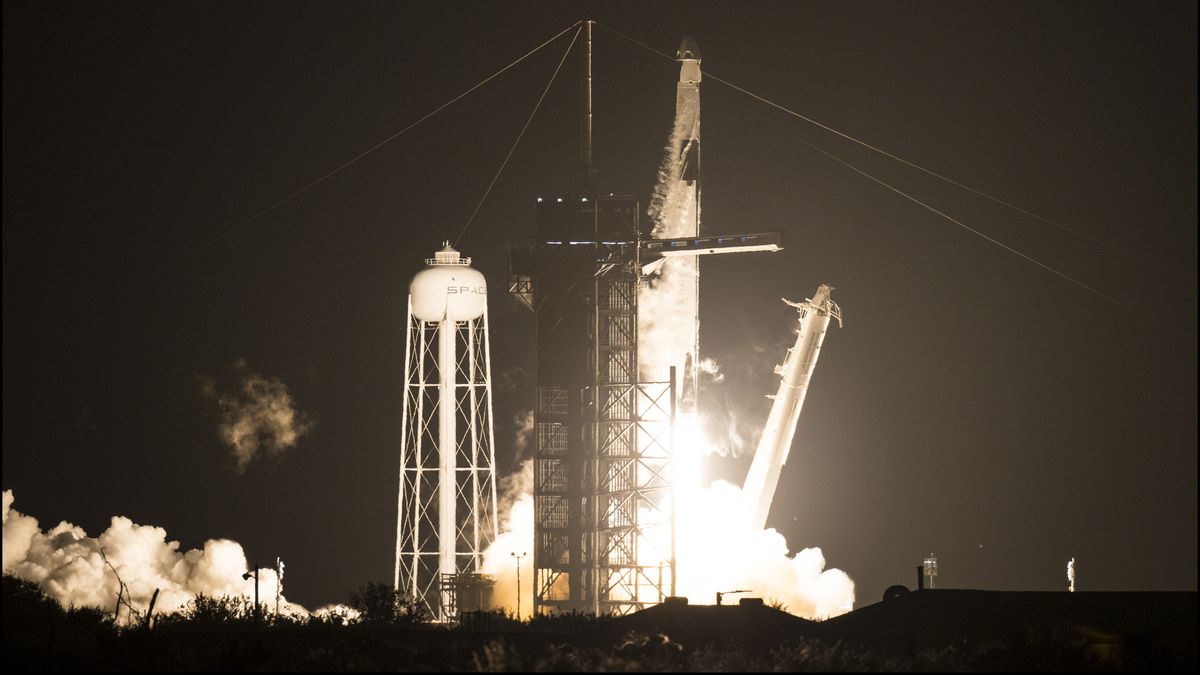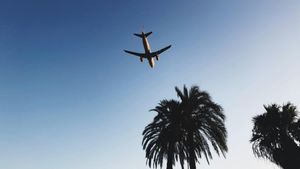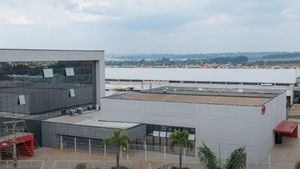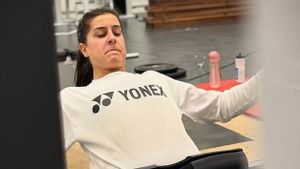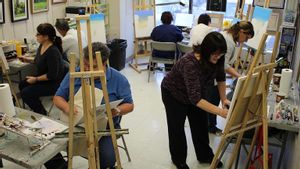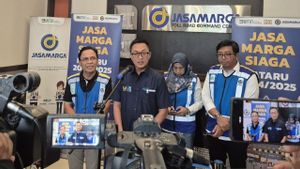JAKARTA - Four astronauts from the American space agency (NASA) are on their way to the international space station (ISS). This will be the first operational mission to be fully controlled by a private company, SpaceX.
Launching the New York Times, SpaceX's Falcon 9 rocket successfully carried Crew-1 off into space. Rocket launched from Launch Complex 39A, Cape Canaveral, Florida.
The mission, named Crew-1, brought three NASA astronauts, namely Michael Hopkins, Victor Glover and Shannon Walker, and Japanese JAXA astronaut Soichi Noguchi. It is estimated that the four astronauts will arrive on the ISS on Tuesday morning at around 11.00 Indonesian time.
After the docking process is complete, the four astronauts will begin work on the ISS and will remain on the space station until June. Where they will serve with NASA astronaut Kate Rubins and two Russian cosmonauts Sergey Ryzhikov and Sergey Kud-Sverchkov who first arrived at the ISS.
Liftoff! pic.twitter.com/Unf1ScdVFB
- SpaceX (@SpaceX) November 16, 2020
This is the second time SpaceX has delivered astronauts to the ISS. In May, Elon Musk's company embarked on its first manned mission and brought astronauts Bob Behnken and Doug Hurley as the first two humans to fly into orbit aboard a Falcon 9 rocket and a Crew Dragon capsule under NASA's Commercial Crew program.
NASA also hopes that this launch will become a routine mission for astronauts to fly on US soil. The reason is, in the last ten years, the US has always "hitched a ride" on Russian rockets and runways to launch astronauts to the ISS.
"I am very proud to say we are returning ordinary human spacecraft launches to American soil on American rockets and spacecraft. This certification milestone is a remarkable milestone from NASA and SpaceX that highlights the progress we can make in working with the commercial industry, "NASA Administrator Jim Bridenstine said, as quoted by CNBC.
"All for one, Crew-1 for all!" @Astro_illini has just given @AstroVicGlover a gold pin in honor of Victor's first time crossing the 100 km (62 mi) mark above Earth. pic.twitter.com/jtilPkWHkt
- NASA (@NASA) November 16, 2020
The Crew Dragon, including the Falcon 9 rocket, is the first spacecraft NASA certified for regular flight, since the shuttle 40 years ago. However, NASA said this success did not mean their cooperation with Russia had stopped.
"We want to have a seat swap where American astronauts can fly on Russian Soyuz rockets and Russian cosmonauts can fly in commercial crewed vehicles," said Bridenstine.
SpaceX's Private RocketUnder NASA's Commercial Crew program, SpaceX has completed several projects to prove the readiness of the system and their rocket is ready to fly astronauts into space.
By 2015, the SpaceX team had completed a series of tests for the Falcon 9 rocket. Dozens of tests such as the Crew Dragon capsule parachute system were also conducted to ensure every astronaut could return to Earth safely.
In March 2019, NASA and SpaceX took a big step forward by sending a falcon 9 rocket and a Crew Dragon capsule into space. NASA's demo-1 mission succeeded in delivering a SpaceX-made capsule to the ISS for five days, before returning home to Earth.

NASA's Commercial Crew Program aims for safe and cost-effective space transportation through its partnerships with private American industry such as SpaceX.
This partnership is changing the course of human spaceflight history by opening up access to low-Earth orbit and the International Space Station for more people, more knowledge, and more commercial opportunities.
The space station remains a stepping stone for NASA's next big leap in space exploration, including future missions to the Moon and Mars.
The English, Chinese, Japanese, Arabic, and French versions are automatically generated by the AI. So there may still be inaccuracies in translating, please always see Indonesian as our main language. (system supported by DigitalSiber.id)
